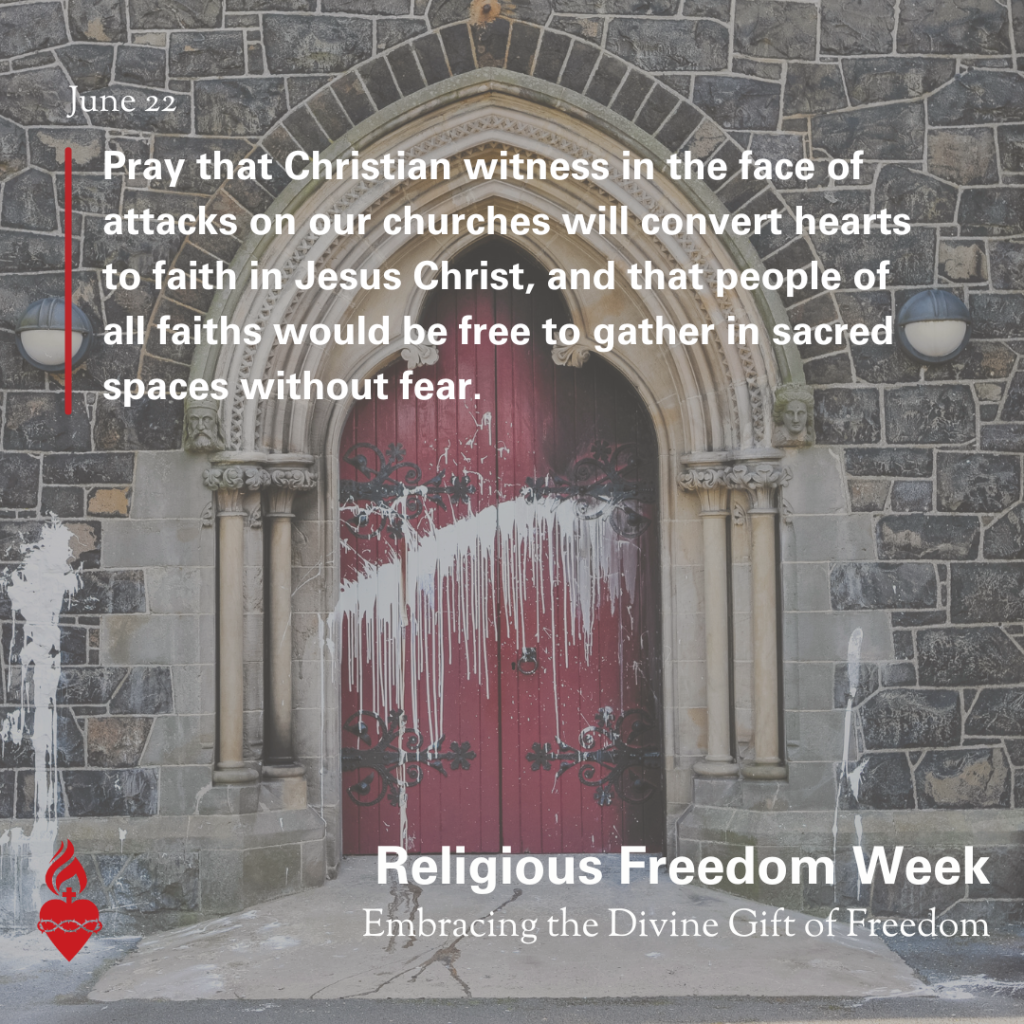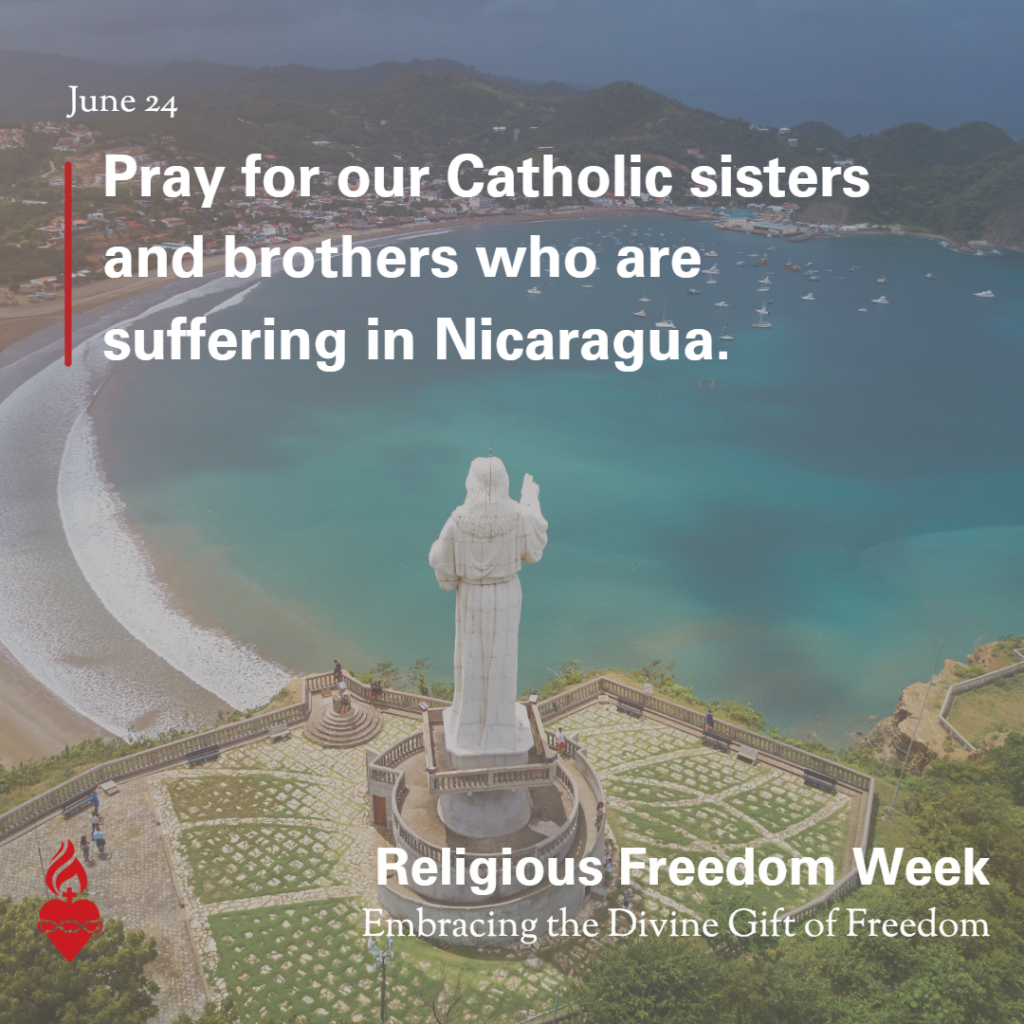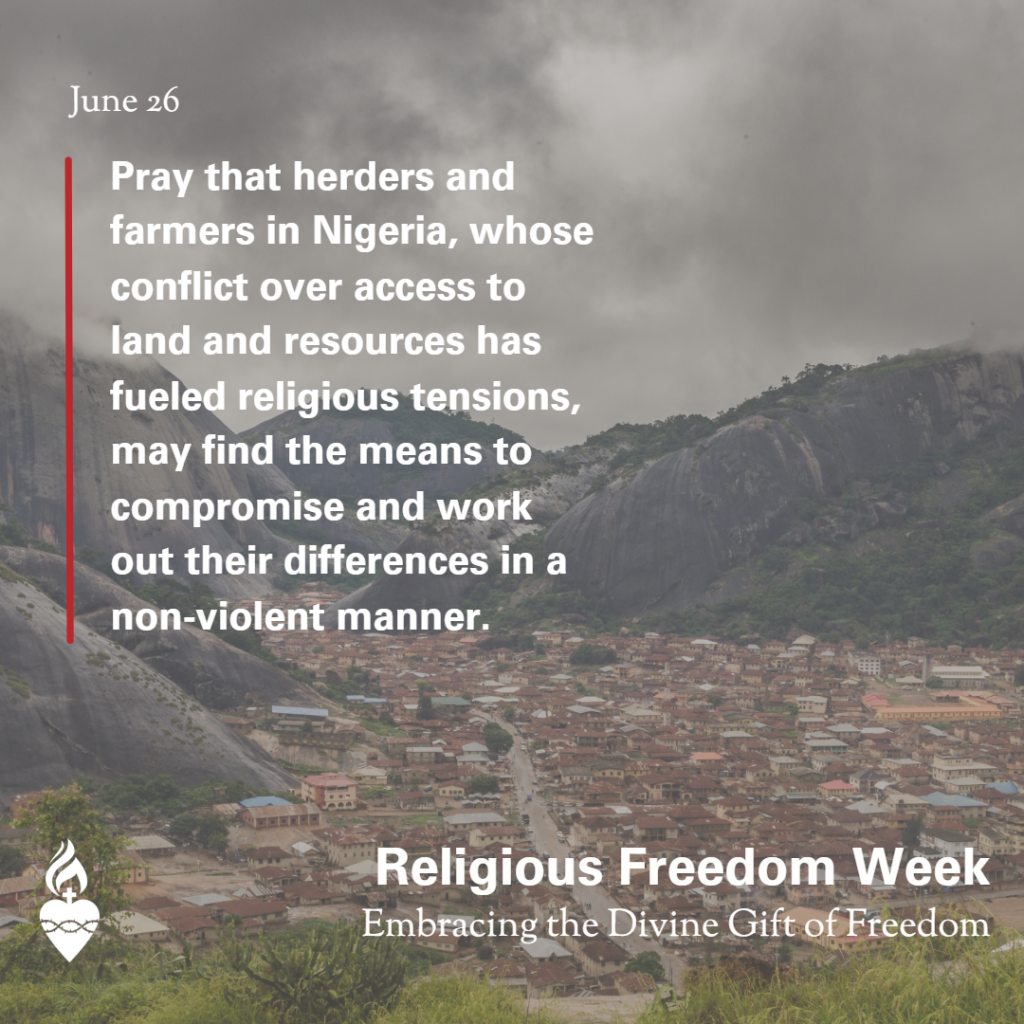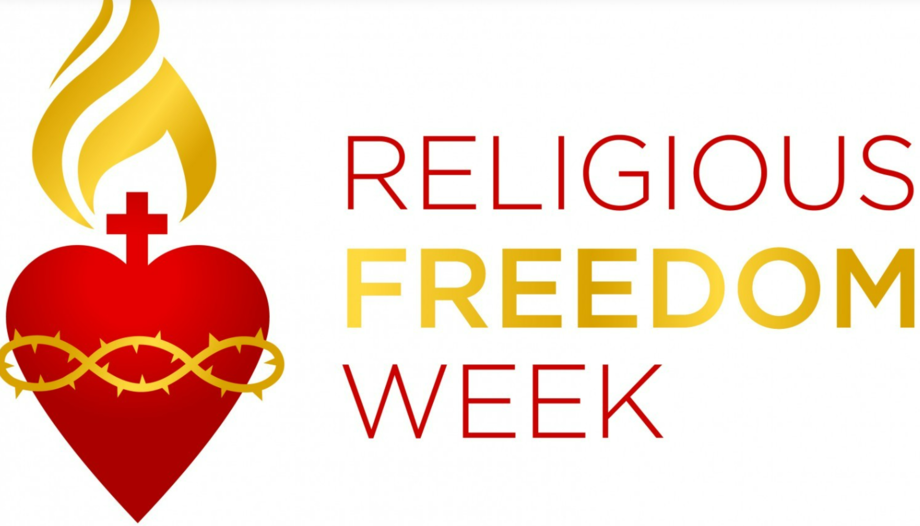On June 22, the Catholic Church celebrates St. Thomas More and St. John Fisher. Through the intercession and patronage of these saints, the U.S. Conference of Catholic Bishops (USCCB) calls for a week of prayer, reflection and action for religious freedom.
The episcopate considers these men an example of "faithful citizenship". Both "loved and served their country". They were two men who "never rose up to incite rebellion or foment revolution. They were not traitors. But when the law of the king came into conflict with the law of Christ, they submitted to Christ."
St. Thomas More and St. John Fisher "gave their lives for the freedom of the Church and for freedom of conscience. They are witnesses to the truth that no government can lay claim to a person's soul." Therefore, the bishops ask for their intercession that they "continue to light the way for us as we seek to faithfully serve our Church and our country."
Freedom, a divine gift
Under the motto "Let us embrace the divine gift of freedom," the USCCB wants to focus for a week on various aspects of religious freedom. Specifically, there are eight aspects proposed by the episcopate for prayer, reflection and action:
-Respect for sacred spaces
-Secret of confession
-Nicaragua
-Students on campus
-Christians in Nigeria
-Faith in business
-immigrants
-Catholic medical care
Respect for sacred spaces
The bishops explain that "the very nature of a sacred space is that it is set apart from other places as an area for divine worship and, therefore, should be treated with respect." Consideration of these spaces "is fundamental to the benefit of civic peace, which is part of the common good."

The USCCB denounces the increase in attacks on sacred sites, especially since the annulment of Roe v. Wade. "But Catholics and other Christians are not the only ones defending their sacred spaces. In Arizona, Native American tribes have been fighting to prevent Oak Flat, a place that has been used for prayer and worship since time immemorial, from being destroyed by a copper mining company." Although the context varies in these cases, "the underlying principle is the same: attacks on sacred spaces, whether for political ideology or commerce, are detrimental to religious freedom."
In the face of this, the bishops ask for prayers "that Christian witness in the face of attacks on our churches will convert hearts to faith in Jesus Christ, and that people of all religions will be free to gather in holy places without fear."
Secret of confession
The USCCB defines the sacrament of confession or reconciliation as "a sacred encounter between the penitent and the Lord that offers forgiveness and healing through the ministry of the priest." Given the clear importance of this, "the Code of Canon Law prohibits priests from divulging information they have received in confession." In addition, the Church established excommunication as a penalty for a priest who directly violates the secrecy of confession.
Today, especially with the exposure of sexual abuse cases, many institutions are calling for the revocation of the seal of confession, and the bishops recognize that "it is essential that, as far as possible, the Church work with civil authorities to ensure that criminals are brought to justice and that communities are safe." However, "a priest may not force a penitent to turn himself in as a condition of receiving absolution, priests may encourage the penitent to report the crimes to the proper authorities, or may ask the penitent to speak with him outside the context of confession."
Respect for this secret in reconciliation with God "is the recognition of the proper relationship between church and state and the right to the free exercise of religion, not only for Catholics, but for people of all religions."
Given the current context, the USCCB asks Catholics to pray "that governments will respect the secrecy of the confessional as the Church in the United States continues to work to eliminate the scourge of abuse by clergy."
Nicaragua

The bishops denounce the situation experienced by the Church in Nicaragua which, since 2018, "has been facing a systematic and persistent campaign of aggression by the government and pro-government agents, with churches attacked with lethal force, priests and religious imprisoned or exiled, the apostolic nuncio expelled and, in February 2023, the unjust sentencing of Bishop Rolando Alvarez of Matagalpa, Nicaragua, to 26 years in prison."
The episcopate points out that "the cruelty of the persecution is highlighted in the numerous acts of profanation against the Blessed Sacrament that pro-government forces have been committing and the prohibition of traditional processions by the mostly Catholic population during Holy Week. These are politically calculated acts of psychological and spiritual terrorism against the faithful in Nicaragua. They are intended to send a message to the bishops, priests and faithful that the regime will do everything possible to crush and silence the moral voice of the Catholic Church in the country."
Students on campus
U.S. universities allow students to participate in religious-related groups. "However, university policies intended to promote inclusion, such as the rule that any student has the right to be a caretaker of a campus student group, have been used to prohibit religious student groups from ensuring that their caretakers and members share their faith."
These rules give rise to inconsistent situations, as "an atheist might lead a Bible study, a climate change denier might lead the ecology club, or a Republican might lead the College Democrats." University policies give a "false idea of inclusiveness" and prevent "groups from having a distinctive mission or identity."
In the opinion of the episcopate, universities, in order to welcome the gift of freedom, have to allow "student groups to operate according to their distinctive missions."
Christians in Nigeria
The USCCB echoes the communiqué sent by the Bishops' Conference of Nigeria in 2021, in which they denounced the grave situation in the country. The bishops say that "the lack of security is total". The confrontations have been aggravated "due to the fact that the herdsmen are generally Muslims of the Fulani tribe and the farmers are Christians of various ethnic groups", which has further increased "the ethnic and religious differences in the conflicts that originated over access to agricultural resources".

The shortcomings in the solutions provided by public institutions have resulted in a cycle of reprisals spread throughout Nigeria. "For example, in January 2022, Islamic terrorists attacked and burned down a rectory, killing one priest and seriously injuring another. Subsequently, a mob of Christians burned down the local police office in response to the perception that police do not respond as quickly to attacks against Christians as they do against Muslims."
The controversy is so serious that "the possibility of dialogue between opposing groups" is inhibited and endangers religious freedom. Therefore, the U.S. bishops ask that Catholics pray especially this week "that pastoralists and farmers in Nigeria, whose conflict over access to land and resources has fueled religious tensions, may find the means to compromise and resolve their differences nonviolently."
Faith in business
The episcopate reminds that "Christians are Christians not only when they pray or serve in a non-profit ministry," but that their faith should extend to all spheres of their lives. This means that "Catholics also seek to live their faith in their work life," but not only they "should be able to live their religion holistically. All people should be free to allow faith to guide them in their daily affairs, including at work and in business."
The USCCB explains that conflicts between the world of work and religious freedom "may arise when an employee seeks accommodation for his or her practices, such as an exception to attire rules in order to wear certain religious garments or a request to accommodate schedules for certain days or times, such as the Sabbath or certain prayer times." Another kind of conflict "involves cases where the business itself conflicts with some government policy," as might be the case with health care plans deemed immoral or speech that goes against religious convictions. "In all these cases, a culture that welcomes the divine gift of freedom will be one that leaves as much room as possible for people to participate in working life in accordance with their religious convictions."
Immigrants
The bishops speak of the delicate balance between defending national borders and respecting the dignity of all people. Alongside the actions of public institutions, the Church also seeks to address the needs of immigrants, ranging "from meeting basic needs to assisting with resettlement and offering legal services to help newcomers explore the expectations of the host country."
However, some of these Christian services face legal attacks "because the Church refuses to facilitate abortions for children in our care, while elsewhere, state governments have passed or proposed laws that prohibit 'providing asylum' or transporting undocumented immigrants, even when the 'providing asylum' is just providing a safe place to sleep, or the transport is just a trip to Mass, which could essentially criminalize much of the Church's ministry to immigrants."
The USCCB believes that "a nation that embraces the divine gift of freedom will respect the dignity of all people and enable the Church to carry out its mission to vulnerable people, including migrants and refugees."
Catholic medical care
The bishops point to the Church's great dedication to the sick through "institutions dedicated to medicine and the accompaniment of the dying." Today, however, Catholic hospitals and professionals face a number of challenges, some of which attack religious freedom.
"Activists have sought to harm the Church's mission by forcing Catholic hospitals to perform procedures that destroy human life and undermine human dignity, such as sterilization, sex change surgery and even abortion, and people of faith working in secular institutions may be forced to perform abortions."
The changes promoted by the U.S. government in federal regulations resulted, in many cases, in the elimination of "conscience protections for health care institutions and personnel." The USCCB stresses that "a culture that welcomes the gift of divine freedom is one that respects the conscience of hospitals and professionals seeking to carry out the healing ministry of Christ."
Praying, reflecting and acting for religious freedom
Along with the reflections of the USCCB, the bishops encourage each day a concrete prayer intention and action to give visibility to religious freedom.
All the information on this initiative can be found at English and in SpanishThe following information can be found on the website of the Bishops' Conference.








